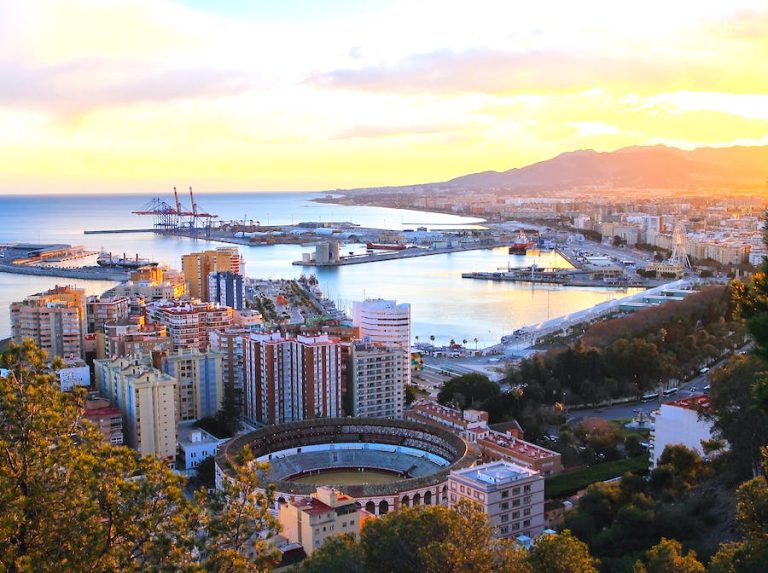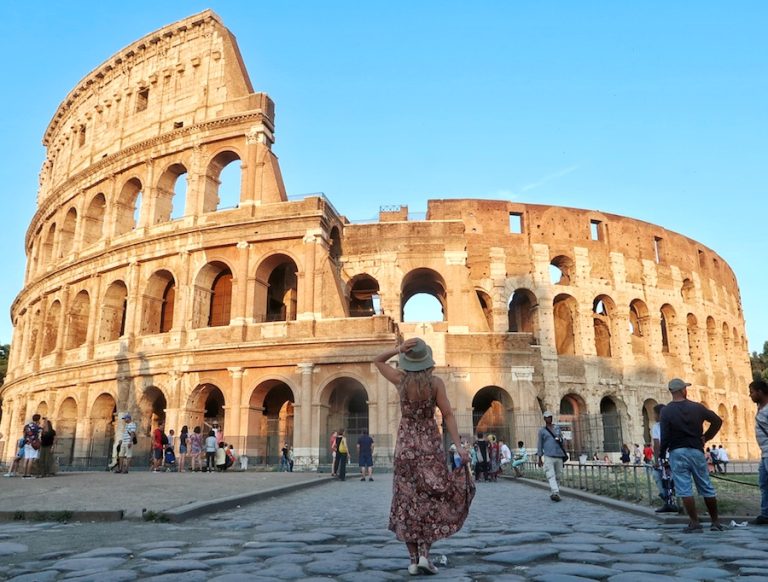Is Belfast Safe? Safety Guide & Tips For 2024

So as you plan your visit to Ireland, it’s only natural to wonder ‘Is Belfast safe?’
Belfast is a wonderful city to visit and, even though I have been myself, I’ve asked Kelie, from Vacations Planned, who is an Ireland travel expert and blogger to tell you if Belfast is safe.
Belfast is the vibrant capital of Northern Ireland. Part of the UK, it’s a city steeped in history, culture, and warm hospitality. You might not know this, but it was recognized in 2021 as a UNESCO city of music, honouring its rich history and contributions to musical culture.
Because of this and for many other reasons, Belfast should be on your radar when visiting Ireland. If you’re reading this article, chances are you’ve already given some thought to a trek up north!
If you’re familiar at all with Irish history, you’re probably aware of events past (i.e. the Irish uprising against Britain, the subsequent separation of Ireland and the Troubles). And even if you’re not, Belfast is a larger city so that’s always a slight concern for travellers who aren’t familiar with their surroundings.
Keep reading to address any concerns that may cross your mind and check out some tips for a safe and enjoyable experience.
Is Belfast Safe In 2024?

You’ll be pleased to know that Belfast is safe in 2024! After the Good Friday agreement in 1998, Northern Ireland by and large has made a huge turnaround since those days of unrest. And tourists now find Belfast to be a safe and welcoming city for visitors.
Ireland’s hard-fought independence from England in 1921 led to the creation of Northern Ireland as part of the United Kingdom. Tensions between the Catholic nationalist community, who wanted unification with the Republic of Ireland, and the Protestant unionist community (who wanted to remain part of the UK) fueled a period of civil unrest known as The Troubles.
The city witnessed bombings, protests, and sectarian violence, leaving a lasting impact on its residents and infrastructure. This lasted from the late 1960s to 1998.
While there still may be some deep lingering feelings among the citizens, that does not spill over into day-to-day living in Belfast. Today, Belfast is a city that balances its historical legacy with a modern outlook. It is one of Europe’s safest cities with a thriving arts scene, a vibrant cultural landscape, and a dynamic economy.
Is Belfast Safe For Tourists?

Belfast is safe for tourists and welcomes all with open arms. Locals are known for their friendliness and eagerness to help.
As you explore the city’s historic sites, cultural landmarks, and lively neighbourhoods, take care and be alert like you would in any city.
Not only does Belfast offer a rich city experience but you’re only a short drive away from the Giant’s Causeway and the Dark Hedges – made famous for its 20-second appearance in Game of Thrones.
But like any other urban centre, it’s essential to be aware of your surroundings and take necessary precautions. The city has made significant strides in recent years to enhance safety, and many generally find Belfast to be a friendly and secure destination.
Although the crime rate is low, it’s good practice to keep your belongings secure. Leave the expensive jewellery at home, stay informed about your surroundings, and enjoy all that Belfast has to offer. A favourite attraction with tourists is the Titanic Museum – definitely check that out!
Is Belfast Safe For Solo Female Travellers?

Belfast is considered safe for solo female travellers. But always exercise standard safety practices, such as avoiding poorly lit areas at night and being cautious with your belongings.
Don’t drink to access. But don’t shy away from the pub’s full stop – unless that’s not your interest. The Irish are known for being super friendly, so don’t be afraid to chat up a local or two at a pub. It’s all part of the fun when travelling. But all the same, be careful of what you’re sharing – like your hotel location, etc.
And in any situation where you’re travelling solo, always make sure someone at home knows your itinerary and where you’re staying and visiting. That’s the same regardless of any destination!
Locals are generally helpful, and the city’s hospitality extends to solo female travellers.
Is Belfast Safe At Night?

Belfast is safe at night and even comes alive with its vibrant nightlife. But like anywhere, you’ll want to keep aware of yourself and your surroundings.
Stick to well-lit areas. And consider travelling with a group, especially in less crowded areas.
Public transportation, like buses and trains, is generally safe. But it’s wise to plan your route in advance and have a good idea of where you’re going.
Don’t drink too excessively and don’t flash your money around. Definitely don’t leave your purse unattended at a pub. Obvious things you wouldn’t do in any big city that will have a bit of petty crime.
What Are The Areas Of Belfast To Avoid?
Officially there aren’t any specific neighborhoods that should be avoided in Belfast. General guidelines, like sticking to tourist areas, are always a good bet.
While Belfast is a safe city, like any other, it’s advisable to exercise caution in certain areas. There are some unionist parts of the city and some nationalist parts of the city. But in general, neither is deemed unsafe. Steer clear of showing favouritism to any political leaning and you should be fine.
Most likely it’ll be obvious you’re a tourist anyway, which isn’t necessarily a bad thing. An excellent way to get to know the neighbourhoods and the city’s history is by taking a Black Taxi tour. You will come out having gained so much knowledge and have been entertained thoroughly by your driver.
And it’s always good to stay informed about local developments and follow any travel advisories that may be in place.
Staying Safe In Belfast: 7 Essential Belfast Safety Tips
With welcoming locals and a low crime rate, Belfast is certainly a safe city to visit and explore. However, it’s always good to know of any precautions when entering someone else’s city/country that has a different history or culture from your own.
Here are some essential safety tips to make sure your visit to Belfast goes even more smoothly.
1. Avoid Talking About Politics Or Religion

While Belfast has moved beyond its troubled past, it’s wise to avoid engaging in political or religious discussions. Respect differing opinions, and steer clear of areas associated with political tension.
So even though political strife has calmed down greatly since the 90’s, that doesn’t mean people won’t have passionate views. Also, remember that you’re the outsider (as welcoming as the Irish can be).
They don’t want to hear your take on the 1919 uprising or the peace agreements in the 90’s. Nor do they want to talk about it with strangers. So don’t ask.
2. Use Common Sense when Out at Night
Stick to well-lit areas, and if you’re unfamiliar with a neighbourhood, it’s best to explore during daylight hours. Plan your route, and trust your instincts.
Most tourist areas and the city centre will be more populated and less likely to be deemed risky. If you’re out late enough to see the pubs close, you might need to be more aware of especially raucous, tipsy patrons. But that’s easily avoidable.
3. Mind How Much You Drink

Enjoy the local pubs responsibly. Drinking in moderation will help you stay aware of your surroundings and make sound decisions. Honestly, that’s just good advice for anywhere really.
The pubs can be lively for sure. But you can definitely enjoy the atmosphere without feeling pressure to drink a ton. The live music will be great and the conversation will flow easily enough to have a great time.
Also avoiding too much drink will prevent the dreaded hangover the next day, possibly ruining a great day trip!
4. Be Mindful of Team Jerseys

Sports allegiances run deep in Belfast. Wearing certain team colours in specific neighbourhoods can inadvertently draw attention. Stay neutral or be mindful of local affiliations.
Supporters of Celtic or Rangers (football teams in Scotland) should NOT wear any of these jerseys and definitely do not ask anybody if they support either of these teams.
So as a visitor who might be unaware of neighborhood divides, it’s probably best to refrain from wearing Irish or English soccer or football jerseys.
5. Avoid Looking Too Much Like a Tourist

While being a tourist isn’t a bad thing, and I even said earlier that it’ll probably be obvious you are one, that doesn’t mean you should be super oblivious of your surroundings either.
Blend in by dressing casually and avoiding conspicuous tourist behaviour. For example, maybe leave your New York Giants cap at home. Try not to have your face buried in your Google Maps while walking the streets. Familiarize yourself with the streets beforehand; this can help you navigate the city without standing out too much.
But with all that said, don’t let that stop you from taking photos like any tourist would! As long as you look alert and have a good sense of yourself, you’re unlikely to be the target of a pickpocket.
6. Don’t Stray Off The Beaten Path

Wandering off the beaten path is one of those joyous travel experiences we all want to experience but Belfast is probably not the place you want to try it.
While there aren’t any no-go areas, it’s still a capital city in Europe and wandering without a local to areas that aren’t on the tourist trail is not a good idea.
Anyone wanting to visit areas that may have seen unrest or are interested in learning more about Belfast’s history can take one of the popular Black Cab taxi tours.
7. Learn The Emergency Service Numbers For Northern Ireland

It might not be the first thing you think of but it’s essential to know the numbers of the emergency services in Belfast and Northern Ireland. This is different to those coming from the United States where the number is widely known as 911. Same with EU nations where the number is 112.
Being a part of the United Kingdom, the number for the fire, police and ambulance services is 999. Pretty easy to remember! If you need to contact the police for non-emergency calls you can use 101.
FAQ’s: Visiting Belfast
Now that you know that Belfast is safe to visit, let’s go through some FAQs to put your mind at ease.
Is Belfast Safe To Walk Around?
Yes, Belfast is generally safe for walking around. Especially if you’re sticking to the city centre. Stick to well-populated areas and use sidewalks when available.
And depending on your home country, remember to look the correct way for cars before crossing the street! Although, as a whole, the drivers are generally cautious. I generally just check both directions.
If you’re uncomfortable about walking around Belfast, there are many walking tours you can choose from to get a great sense of the city and to learn its history.
Is Belfast Safe For American Tourists?
Absolutely. American tourists are warmly welcomed in Belfast. The city’s diversity and international atmosphere make it a comfortable destination for visitors from the United States.
Is Belfast Safe For An English Person?
Belfast is a welcoming city for people from all backgrounds, including English visitors. Also, don’t forget, that this northern Irish city is in the United Kingdom. So they are well used to English presence.
If you’re feeling unsure, just embrace the local culture, and you’ll find the experience to be enriching.
Is Belfast Safe To Live?
Belfast is not only safe for visitors but also for its residents. Many people find Belfast to be a delightful place to live, with its rich history, cultural events, and friendly community.
Belfast is considered a neutral zone. And many of the struggles from the 20th century are a thing of the past.
Wrapping Up: Is Belfast safe?
Belfast is a safe and exciting destination for travellers. There’s honestly so much to see and do here. And it’s a quick day trip from Dublin if you don’t have too many days to spare in your itinerary already.
By following some common sense guidelines, respecting local customs, and staying informed, you can fully enjoy the charm and warmth that Belfast has to offer. Practice the usual caution you would in any big city and you’ll be fine.
Embrace the culture of the city, and your visit is sure to be a safe and memorable experience.







